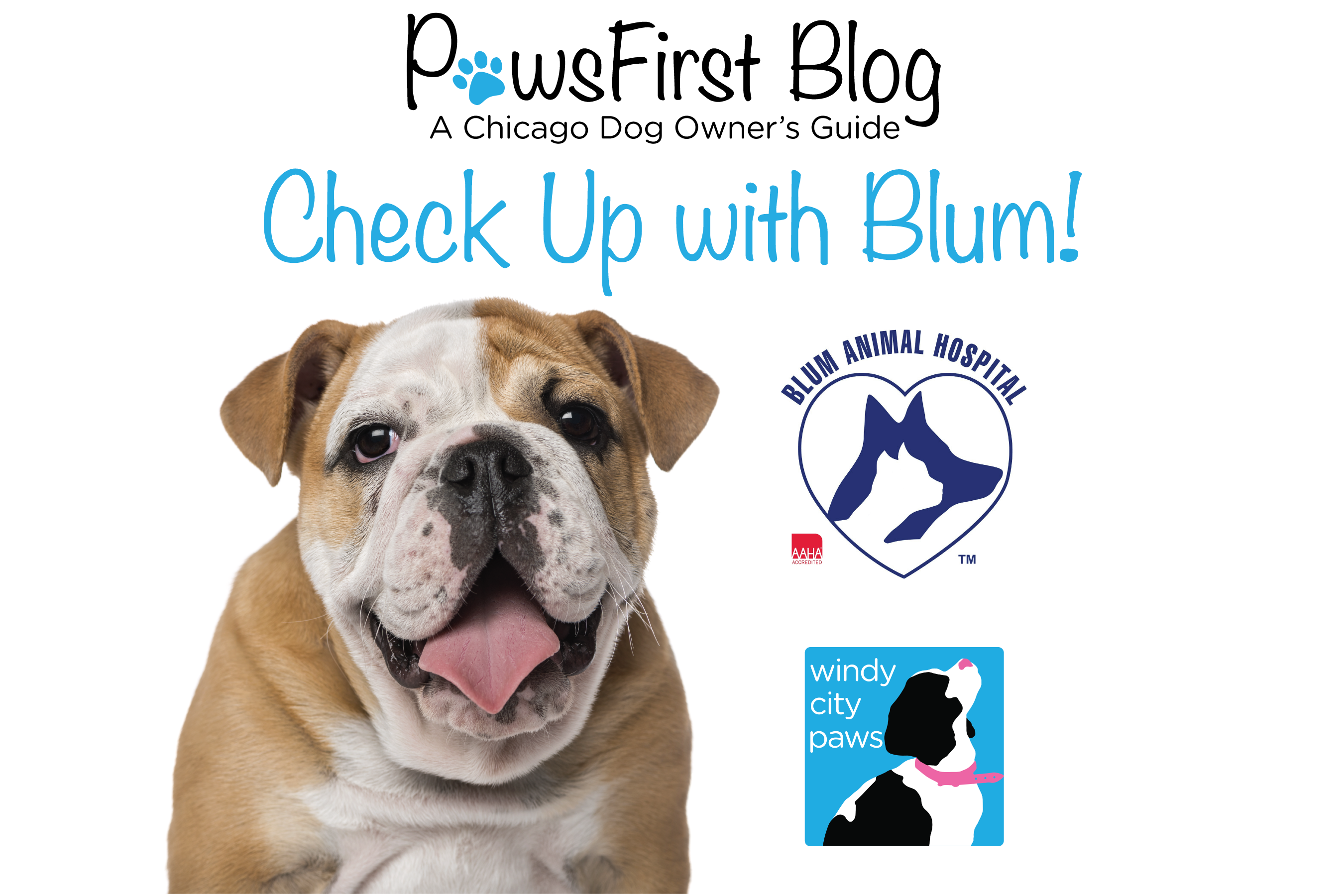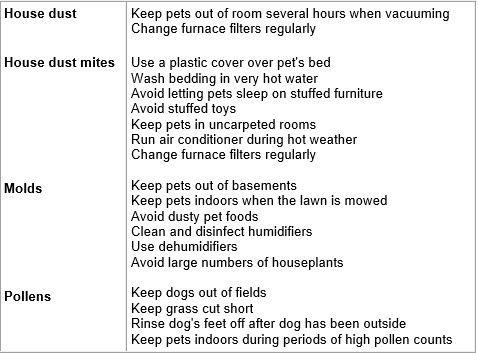
.
This month, we’re tackling the issue of dog allergies. While pretty much every Chicagoan is glad to see the season of spring arrive, it can also mean allergy season for both you and your dog! Read on to see what you can do to help your pup get allergy relief.
What kind of allergies affect dogs?
According to Dr. Marks, three main categories of allergies affect dogs all over the country (Chicago included): flea allergy, food allergy, and environmental allergy (known as atopy in medical terms). Lots of dogs are afflicted by the same environmental allergens that humans are: pollens, grasses, molds, trees, and sometimes dust mites. The human “allergy season” is also the same for dogs, so there are certain times of the year when they can be more prevalent.
How are allergies diagnosed and treated?
If you suspect that your dog has allergies (more on the symptoms for the three main categories are below!), you should make an appointment with your veterinarian. The vet will want to discuss a very standard four-step approach to find the source of the allergy or allergies in your pup. As Dr. Marks describes it, the process for determining an allergy in your dog is: first, tests will be run to rule out parasites (like fleas), then infections (bacteria and yeast), then food allergies. If no other allergies are found, a diagnosis of environmental allergy (atopy) is made by exclusion of all other reasons.
Allergy treatment has evolved in recent years. As Dr. Marks explained, traditionally, “allergies have been treated with bathing, antihistamines like Benadryl (which only improve quality of life for 1 in 4 dogs), and steroids, which have many negative long-term side effects. However, in the last few years, there have been tremendous breakthroughs in allergy-induced itch control with medications like Apoquel (an oral tablet) and now Cytopoint (a once monthly subcutaneous [under the skin] injection).” To learn more about these new treatments, talk to your vet!
It is important to remember that allergies cannot be cured, but they can be managed and controlled. Managing your dog’s allergies can take a lot of time and work, but it will greatly improve your furry buddy’s quality of life.
Are some dog breeds more likely to have allergies?
Since allergies are caused by a genetic abnormality in a dog’s immune system, any dog can develop allergies throughout their life. Still, there are some breeds who are “over represented” when it comes to having allergies according to Dr. Marks. Those breeds are:
Scottish Terriers
West Highland White Terriers
Cairn Terriers
Wire Haired Fox Terriers
Lhasa Apsos
English and Irish Setters
Retrievers
Dalmatians
Pugs
Miniature Schnauzers
English Bulldogs
If you have a pup whose breed is listed above, make sure to keep a close eye out for the symptoms described below!
Environmental Allergies: Signs and Prevention
You should always consult your veterinarian if you think your dog may have an allergy, but there are a few symptoms to look out for and bring up at a vet visit! If your dog has environmental allergies, the reaction can often present itself as redness or itching under the armpits, in the groin area, and/or on your dog’s muzzle. Dogs with environmental allergies will also typically lick their feet (86% of cases). Dogs with environmental allergies tend to develop them once they are over two (2) years of age.
Dr. Marks provided this helpful chart that lists the most common environmental allergens and how you can help cut down on your dog’s exposure to them:

Food Allergies: Signs and Treatment
Just like in humans, food allergies or intolerances are very common in dogs. Food allergy reactions in dogs often present themselves on the “ears and rears” according to Dr. Marks. Dogs having an allergic reaction to food often have red, inflamed, and itchy ears in addition to excessively scooting across the floor, licking their rectum, and developing diarrhea.
The key difference in diagnosing food allergies in dogs is that veterinarians cannot accurately determine what food or foods a dog is allergic to by conducting a blood test, as doctors can in humans. Veterinarians can only perform food trials to diagnose a food allergy. This entails 8 to 12 weeks of feeding you dog “a strict single novel or hydrolyzed protein source” (example: chicken) to see your dog’s reaction, as Dr. Marks described.
Most dogs with food allergies start showing signs between 6 months to 2 years of age. If you notice any of the symptoms above, talk to your veterinarian about testing your pup!
What are the signs of my dog have a flea or other parasite allergy?
Dogs who are allergic to fleas or other skin parasites tend to have severe itching and hair loss on the back just above the tail and the hind legs. Talk to your veterinarian about the best treatments for flea prevention to keep your dog’s skin healthy!
Allergic Reactions: What else should I look for?
We have covered the most common signs and causes of allergic reactions in dogs, but there is one more less common one to keep an eye out for as well. An anaphylactic reaction will cause significant difficulty in breathing, pale gums, vomiting, and lethargy in your dog. Anaphylactic reactions can occur after incidents like bee stings and spider bites, but they are an unusual type of allergic reaction. This type of reaction can require emergency treatment, so make sure to consult your veterinarian as soon as possible if you notice those symptoms.
Again, it is important to remember that allergies cannot be cured, but they can be well-managed and kept at bay for your Chicago dog! If you know the signs to look for and get a treatment plan set up with your veterinarian, you can make sure that your pup who has allergies has a comfortable, happy, and healthy life here in the Windy City!
Thank you to Dr. Natalie Marks at Blum Animal Hospital for her insight into allergies and allergy treatment for dogs! Also, if you have allergies and are looking for the best breed for your home, read our article on Dog Breeds For Those With Allergies!
Blum Animal Hospital is located at 3219 N. Clark Street and has been caring for Chicago’s pets since 1952. They have been accredited by the American Animal Hospital Association (AAHA) since 1972. To learn more about Blum, their Fear Free certification and the calming techniques they use, check out their website!





